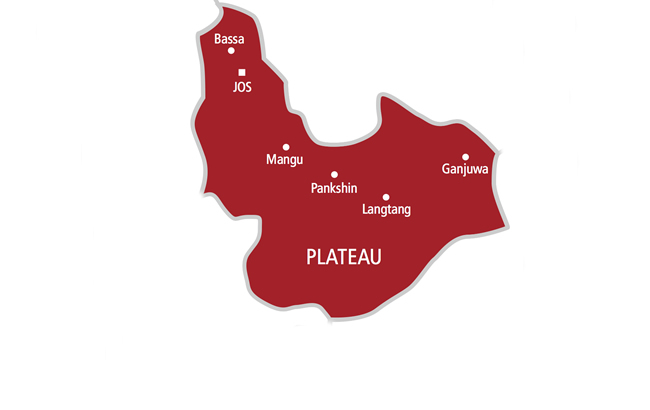If you happen to have a non-Nigerian friend, how do you explain that, four years after Boko Haram swaggered into a school and snatched 276 girls, most of whom have still not been found, they again arrived in another school—this time just days after the government declared them “completely” defeated and finished—grabbed another 110 right before our eyes, and vanished?
But forget about the world.
How does anyone explain to the parents of the newly-abducted, who have for four years agonised with everyone else over the inaction, the Diaris-God coldness of one government, and then the all-round weakness and complicity of its successor, that their children will indeed come back?
President Muhammadu Buhari, on the verge of declaring he will run for the presidency again next year, has apologised for the snatching of the girls, students of the Government Girls Science and Technical College, School in Dapchi, Yobe State. That was one week after the incident.
As we all know, no presidential candidate wants to look weak and empty. He said troops and reconnaissance aircraft would be used in searching for the girls.
And so, the Nigeria Air Force took to the skies, the same skies from which it has bombarded the very life out of Boko Haram for the better part of 10 years. But after reportedly 200 hours of the effort and the participation of various intelligence agencies, the government last week reported no success. Far too much time had been lost while its agencies fell over each other in bewilderment and confusion, but not shame.
This is barely surprising. In 2014 in Chibok, the Goodluck Jonathan government first responded with the same denial as Buhari’s in Dapchi. Jonathan’s 2015 election was wrecked largely by the Chibok scandal; understandably, the current government fears the implications of the wrench thrown into its election plans by the militants.
But that is arrant nonsense.
How can the same government which only days before the abductions held parties celebrating the ‘defeat’ of Boko Haram and taking over Sambisa Forest now confess—that is what it is—that the militants are neither defeated nor in disarray? How can it confess that Boko Haram is powerful and organized and wily and armed enough to stroll into a school in northern Nigeria, in the full view of Nigeria’s armed services and so-called security agencies, and drive off with over 100 girls unmolested?
What thismeans is that the government was either lying when it claimed victory, or it is lying now when it suggests it has been outwitted. It was not outwitted by Boko Haram; it was compromised by its own inability to govern.
The prospects are awful. In fact,Daily Trust has already reported that the militants took half of the girls across the border into Niger.
How does a vanquished force accomplish that? How does a force with no air power or telecommunications or roads consistently treat Nigeria’s so-called military might with such contempt?
What do you tell the Dapchi families and those of Chibok who have still to find their daughters despite millions of dollars Nigeria has allegedly paid to the militants in ransom, with hundreds of their fighters returned to them as well?
One such despondent Dapchi family last week told the BBC the horror story of its 14-year old Zara Tijjani, who numbers among the latest Boko Haram heist of Nigeria’s children. “I don’t know why the government [did not react] faster,” said Yussuf Tijjani, her father. “But these are not the children of senior politicians, they are the children of poor men.”
In other words, when it comes to the security question, all Nigerians are not the same. Remember that just weeks ago, Mike Okiro, the Chairman of the Police Service Commission, revealed that as many as 150,000 do not serve the public; they are deployed to VIPs and “unauthorised persons.” Some of those could have been in Dapchi; they are not available anywhere to protect the public interest, either.
But what Chibok and Dapchi underline the most are three of Nigeria’s realities of official stupidity, incompetence and class division. Stupidity: it has now been confirmed that soldiers were removed from Dapchi only days before the attack.
Apparently, they were removed in line with the false and self-serving narrative that the militants have been routed. Who removed them, why was it necessary to do so, and why were they not replaced by the police?
Second, incompetence: at major levels of the Buhari government, incompetence, bolstered by propaganda, has taken hold. Given that the president is widely-known to have populated key positions of his government with members of his party as well as blood and religious relatives whose value is loyalty to him, not performance, standards are abysmal; professionalism, decaying; and initiative disappearing. This is an overrated government of warped values; a government that, given the farm in 2015, has failed to pay back that debt.
Dapchi is proof of our prevailing absence of strategic vision, commitment or dedication. A government of change which shameless claims to have spent N65m to design a website; Togo can make its airports work, but not a single elevator works at MMA, and only one luggage carousel does; Ethiopia can make its airports work, but Nigerians are held up at Immigration at MMA because the computers are down; South Africa can build and maintain its roads but ours are either a mess or in a menacing state of perpetual reconstruction; the River Niger is drying up, but the government does not notice; while the presidential suite of jets rule the Nigerian sky, the toilets at Nnamdi Azikiwe airport in Abuja are an international embarrassment. And oh, the time will come for us to explain while Nigeria did not win a single medal at the next Olympics!
Third, Buhari rules two Nigerias, not one. Think about it: Buhari’s dear son, Yusuf, returned to Nigeria last week from Germany where he was treated for injuries he received in his December 2017 motorcycle crash in Abuja.
Yusuf evidently means the world to the Buharis, and that is how it should be. But remember that until last month, that is also how the Tijjanis of Dapchi held their Zara, and how every family on Dapchi’s new missing list held its daughter.
But Yusuf was not snatched by militants: he was racing on an open city street on an expensive motorbike. When he almost killed himself, he was unapologetically sent to Germany at federal expense to enjoy the best medical care, just as his father unashamedly flew himself to England at public expense when he was sick. For the Buharis, the best Nigerian hospitals are good only for other Nigerians to risk their lives.
And the Buhari government will not accept any blame for Dapchi. It has accepted none for the mountain of scandals and double-standards of the last three years. But if it is somehow to be remembered as an achiever, it must begin by ending the blame game, and correct its self-defeating errors.
Otherwise, sadly, incidents such as Dapchi—which highlights its systemic and philosophical rot—are bound to happen again.











